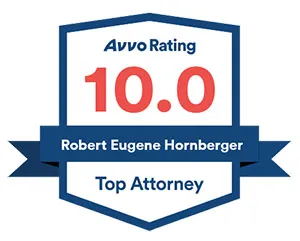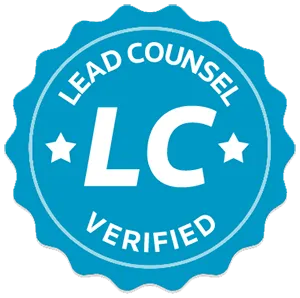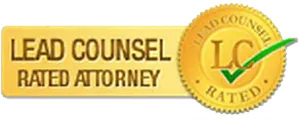As a divorce lawyer practicing in Nassau County and Suffolk County I have seen first-hand how often divorce and financial distress often go hand on Long Island. While we focus our practice on divorce and family law matters, we have a great deal of prior and current experience with the intricacies of bankruptcy law and cases on Long Island. Whether the dividing of assets causes insufficient financial resources to one party or both, or whether financial stress led to irreconcilable discord in the marriage, finances tend to play a critical role in the divorce process on Long Island.
Bankruptcy Often an Option for Divorcing Couples in Nassau County & Suffolk County
In Nassau County and Suffolk County, selling the marital property or residence will not always yield a sum of money substantial enough for the divorcing spouses to pay off all their debts. For this reason, filing for bankruptcy is a viable option for many divorcing couples.
Can Marital Debts Be Discharged Through Bankruptcy After Divorce?
If you are divorced or facing divorce, you might wonder if the debts resulting from a divorce judgment can be discharged in bankruptcy. The answer is that this will depend on the type of debts. The agreements and financial obligations established in divorce are legally binding, and they set forth the rights and responsibilities of each spouse and child in order to best support the financial wellbeing of all involved. On Long Island, bankruptcy is restricted in its ability to change or discharge the debts established by divorce judgments.
Which is Best: Chapter 7 or Chapter 13 Bankruptcy
Generally, filing for Chapter 7 bankruptcy (also known as the “liquidation” discharge, or the sale of nonexempt property and the distribution of the proceeds to pay off creditors) will typically have no effect on the debts of a divorce, while, on the other hand, filing chapter 13 (which provides for an adjustment of debts for individuals with regular income, and also allows individuals to keep their property and assets) can result in a modification or elimination of property settlement debt through a defined chapter 13 plan. For example, spousal support and child support payments may not be discharged in bankruptcy, and must be paid in accordance with the divorce or support agreement. Instead, obligations such as spousal support or child support obligations can be modified only by the Nassau County or Suffolk County court with jurisdiction over those agreements – usually the court that issued the order.
Which Spouse Should File for Bankruptcy in Nassau County or Suffolk County
Whether one or both divorcing spouses should file for bankruptcy depends upon the amount of debt in each party’s name, as well as which spouse holds title to assets such as real estate, cars, and bank accounts. Discharging the debt of one spouse, while the other still has a large amount of debt, will not resolve the issue of who must pay for remaining marital debts.
In many Long Island divorces, one spouse may be given the responsibility of the debt incurred by the other spouse. This type of debt is not usually dischargeable in a bankruptcy, but in certain cases can be. While most of these debts cannot be discharged in a Chapter 7 proceeding, it is sometimes possible to reduce or reorganize the debt through a Chapter 13.
Who Is Responsible For What Debt?
Bankruptcy may be able to resolve the question of which party is responsible for debts accumulated during the marriage. In Nassau County or Suffolk County, debts accrued during the marriage are deemed to be marital debts, regardless of whose name the debt is in, while debts incurred prior to the marriage may be the responsibility of one or both spouses. There is a possible exception to this general rule where one party incurred debt for a purchase or purchases made solely for the benefit of that party, rather than debts incurred for the benefit of the family as a whole. Parties that are still married can file a joint bankruptcy petition, even if they are physically separated. Of course, this requires that the parties can cooperate with one other as well as their Long Island bankruptcy attorney in order to participate in the proceeding. One benefit to this approach is that the divorce can proceed without the need to resolve the issue of marital debt. A bankruptcy discharge prior to the divorce may ease the way for the parties to reach a divorce settlement.
Should You File For Bankruptcy Before or After Your Long Island Divorce
On the other hand, there may also be advantages to filing for bankruptcy after the finalization of divorce. Although obligations incurred pursuant to a divorce are not dischargeable in Chapter 7, debts that are owed to a spouse pursuant to a divorce agreement, which are not in the nature of support, may instead be dischargeable in Chapter 13.
Contact Long Island Divorce Lawyers for Help Divorce and Bankruptcy in Nassau County and Suffolk County
To understand how divorce and bankruptcy can affect one another, contact an experienced attorney familiar with how divorce agreements and judgments will affect a bankruptcy filing, and which debts can be discharged, reduced or eliminated. Contact the experienced Long Island divorce attorneys at Hornberger Verbitsky, P.C. at 631-923-1910 today for a free consultation to learn the bankruptcy options available to you based upon the specifics of the debts and obligations governed by your divorce.
 Download our Free New York Divorce Guide
Download our Free New York Divorce Guide
Our 41-page “Guide to New York Divorce: What You Need to Know Before Hiring a Divorce Lawyer in New York” written by an experienced family law lawyer Long Island’s Robert E. Hornberger, Esq., provides you with real information on the divorce process and the laws it rests upon in the state of New York. This book will help give you a solid foundation upon which you can begin the process of making your family’s, life better. Download your Free Guide to New York Divorce here.














